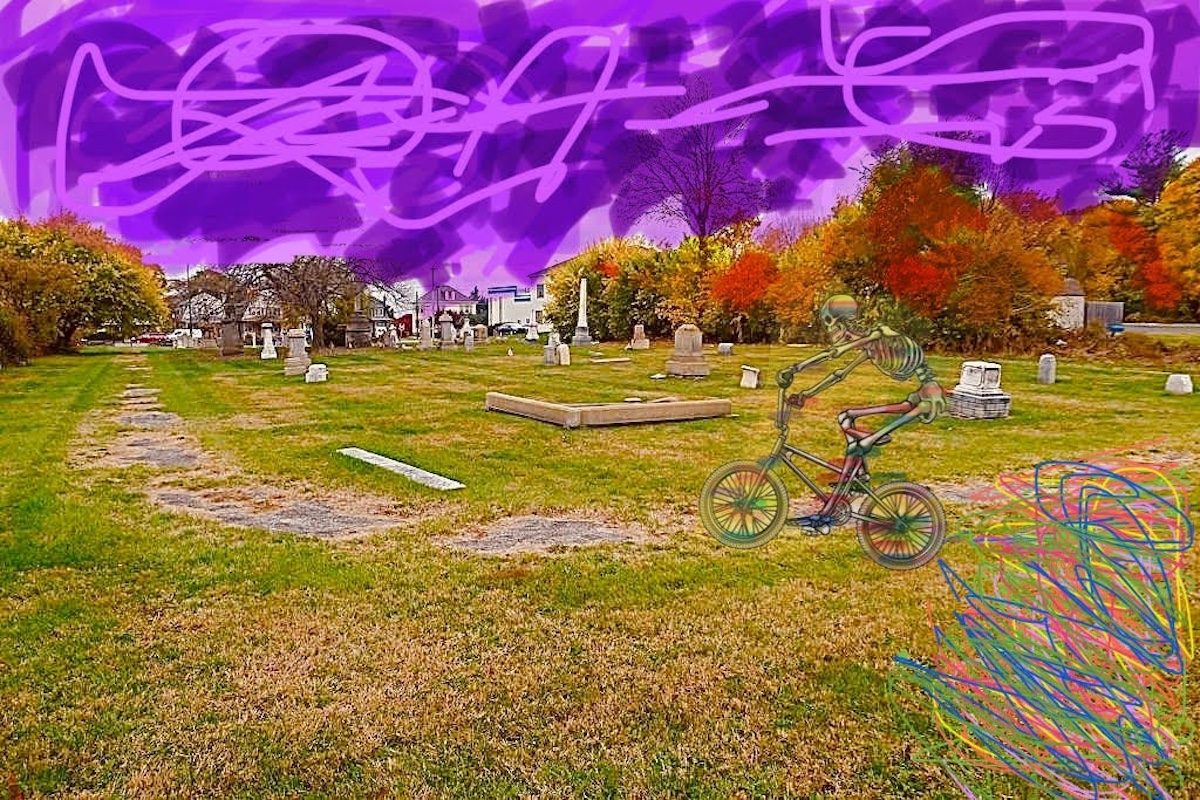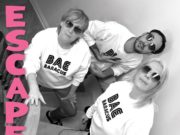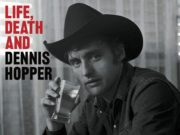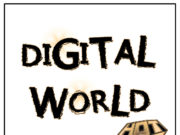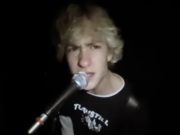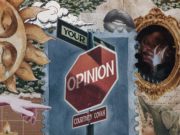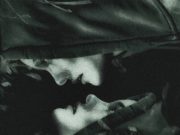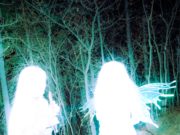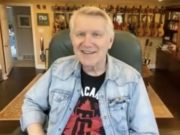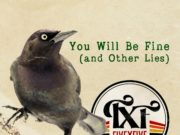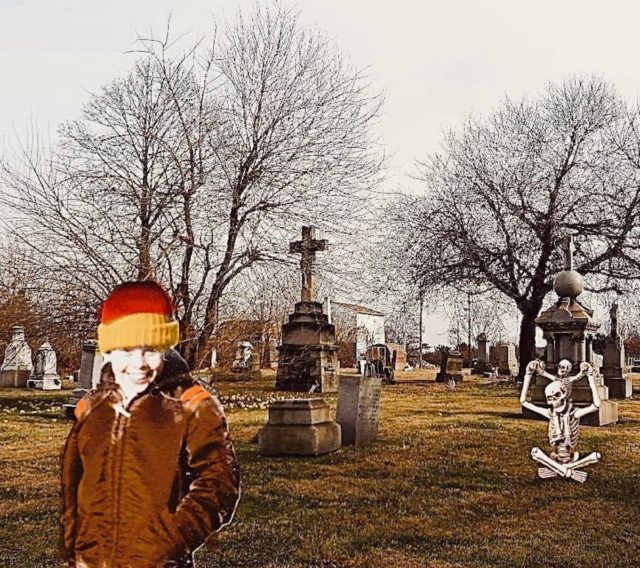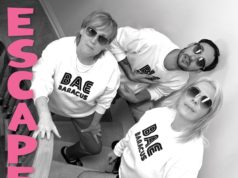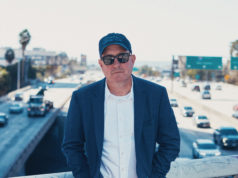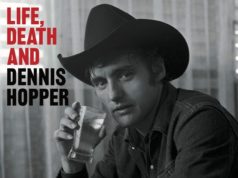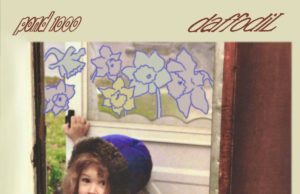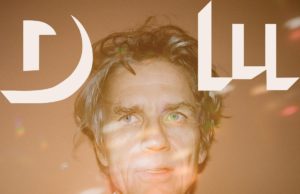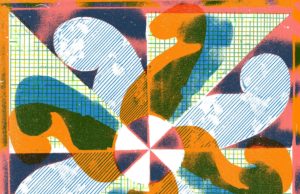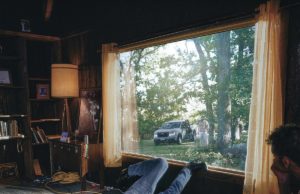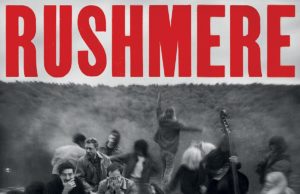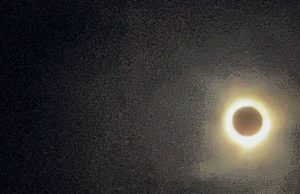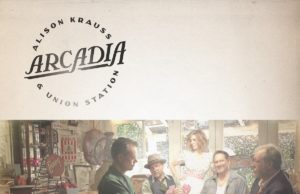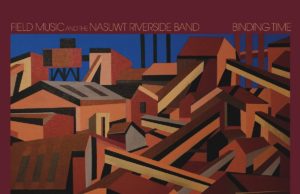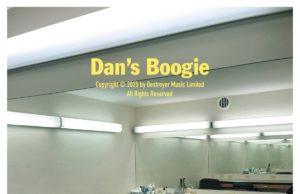“This is my child, he said.
I wash a dead man’s brains out of his hair.
That is my job.”
— Cormac McCarthy, The Road
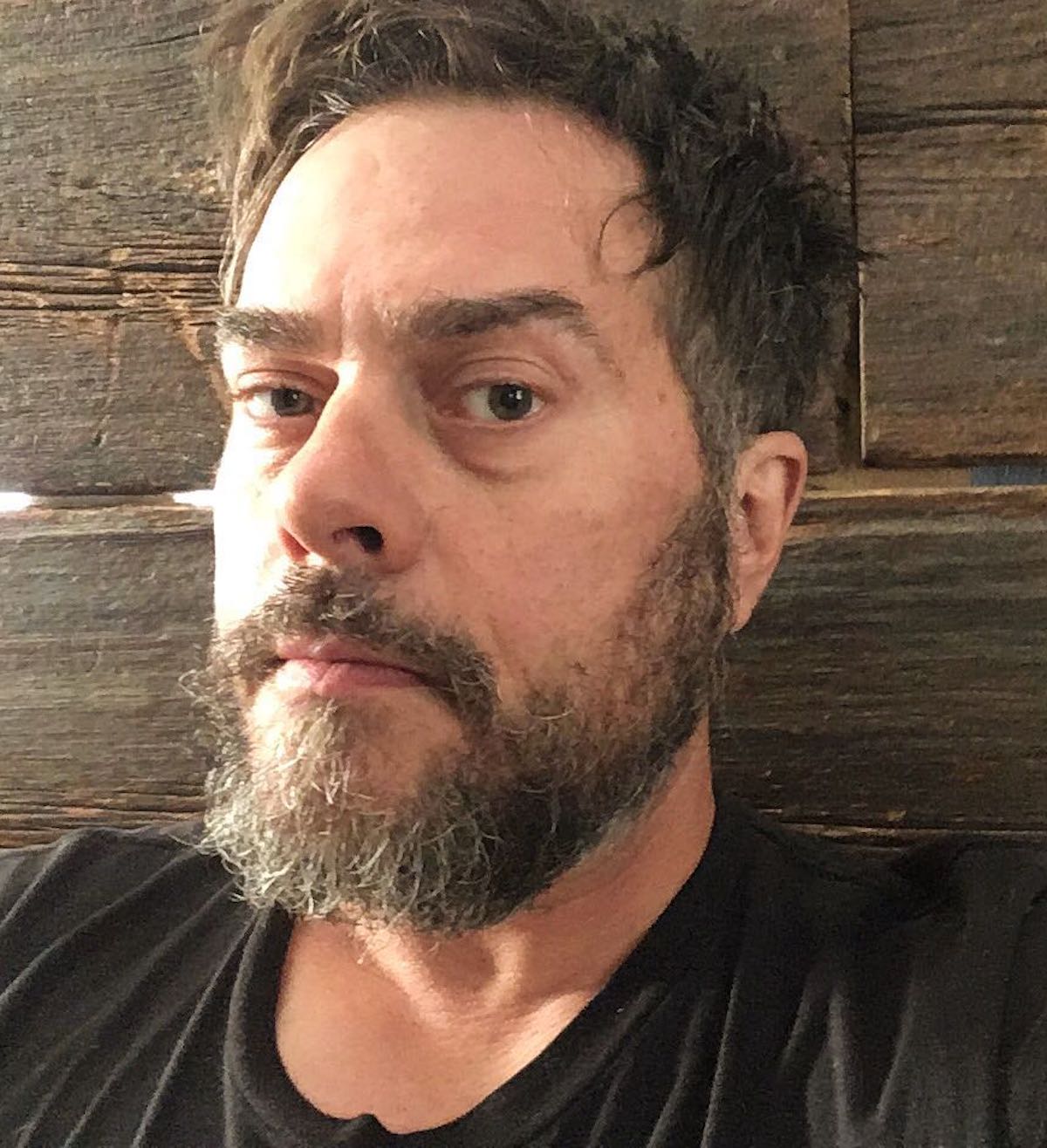 I began to notice things in the summer of my 12th year, when the world was still dumb before computers and cell phones and that sort of thing. We were, I suspect, back then, more like the long gone Civil War soldiers, the last of whom had died out 70 years prior, than we were like these people we have become. Our brains were less dimensional/ slower/ unskilled at things we never would have imagined needing to understand. Like the veiny-handed dying men whose glory had long since faded into the musty books of unread history, me and my mom and my grandparents and my brother/ my strange dad/ my Little League coaches and the Italian people up at the deli/ we knew and understood a world much more in sync with the world that men who fought at Gettysburg and Antietam knew rather than this world unfolding all around you/ wherever you are/ right this very second.
I began to notice things in the summer of my 12th year, when the world was still dumb before computers and cell phones and that sort of thing. We were, I suspect, back then, more like the long gone Civil War soldiers, the last of whom had died out 70 years prior, than we were like these people we have become. Our brains were less dimensional/ slower/ unskilled at things we never would have imagined needing to understand. Like the veiny-handed dying men whose glory had long since faded into the musty books of unread history, me and my mom and my grandparents and my brother/ my strange dad/ my Little League coaches and the Italian people up at the deli/ we knew and understood a world much more in sync with the world that men who fought at Gettysburg and Antietam knew rather than this world unfolding all around you/ wherever you are/ right this very second.
First, I noticed the graveyards.
The cemeteries, they called the newer ones, but it was the forgotten, mostly abandoned graveyards that caught my eye. Whizzing by on my Huffy, fueled by hoagie meat, my kid breath a hot gush of oregano and raw onion, I would catch out of the corner of my eye the old headstones of people who had been dead so long that it occurred to me, as I raced towards Movie World/ plastic bag of Judd Nelson/ plastic case of Judge Reinhold, that even their bones must be nothing at that point. Entire lives erased by years passing. Vast experiences and joys and sadness culminating in absolute nothingness the likes of which I had never contemplated before.
In the blazing sun of summer afternoons, I wondered then, how my life would go. Not in some transcendental way, obviously; middle school me was far from intellectual, or even sharp in the eyes of the average American, probably. But there was poetry unraveling off my arms, beautiful paintings sliding down off my slick sweaty spine. And these things, these visions of a world in which meaning seemed to hold tight to existence (rather than existence eclipsing meaning altogether), they began to pile up around me then until, before long, I couldn’t even see the world without looking at it through some kind of artificial lens/ some sort of well-altered human construct in front of my young eyes like stained glass. Like watching your mom fry burgers on the stove through the soft pinkish bend of a cup full of Country Time. The artful thing, this creative approach to being alive, as it was, happened to me, became a solid window to peer through for me then. It happened on its own with no assistance from any well-meaning parent or special teacher or what have you. No one came within a hundred miles of really trying to see the potential in my love of books or my curiosity about foreign places, others states, blah, blah, blah. It’s not to say that everyone was too ignorant or too overworked to encourage a child to seek out his own path no matter how sensitive or aesthetically cultivated it might seem either. It was more like: if you were an American boy in the late 1970’s/ early 1980’s and you were showing flashes of (cautious) interest in reading and writing and maybe music or anything that wasn’t playing midget football or watching pro sports on TV: most people didn’t know what to do with you.
Or what to do with that.
In the Anne Frank house in Amsterdam, they have places where clear hard plastic is mounted on the walls to preserve actual magazine cutouts that Anne herself once hung there. It is, at first glance, breathtaking. Unknowing that I would encounter such a visually piercing connection to Anne like that in there, the first moments of seeing it the first time I walked through the building were intensely surreal for me. Nearly unbelievable, if I’m being totally honest.
How?, I wondered.
How was it possible that this was here? How was it feasible that something so unimaginable happening to someone so long ago had survived so much to be revealed to my own eyes in the form of something so wonderful yet so gutting?
The pictures are spread out so that the original wallpaper that Anne knew spreads out behind the clips she made herself with some pair of scissors many moons ago. It isn’t one Hollywood star or one landscape scene or any one thing in particular that grabs you either. It is the amalgam, the totality of the thing. The wheel spins fast when something like this catches a person off guard. Where it lands is anyone’s guess, but for me at least, it kept landing on Fake, as in recreation, as in this was something done (and well) to give the visitor the sense of what these very special walls might have looked like at the time of the Frank’s hiding. But the words of the museum’s carefully positioned subtle explanations kept fighting off my comfort zone and before long I had to come to terms with landing on THESE ARE REAL even though I had no idea how to come to terms with the reality of what I was seeing.
No cave paintings or hieroglyphics or Dead Sea Scrolls or Lincoln’s bloody pillow case (also haunting) could come close, for me, to this wall the way it is, the way it remains, for now, until someday it too is gone.
Leaving the museum that first time, I walked back out into a splendidly sun-kissed autumn afternoon/ light sparkling on the canals/ the sky hazy with that particular late day gauze that is only available to be seen and recognized by foreigners in Europe/ as she moves you through her antiquated veins. I remember breathing in the smoky scent of someone’s early fireplace. I looked around me in what must have seemed lost desperation, wildly searching for signs of who passed by here long ago/ the voices of Nazis/ the rattling of suitcases being rushed by forward motion/ the walk home from work by the masses uncertain/ the bombs falling from upper sky/ the distant rumblings/ the bark of a dog who has been dead so long now that it is debatable if he ever even existed.
I mean, how long should we expect to be recalled?
How long, in all fairness, do we truly believe we go on?
I went for a coffee in a sharp clean coffee bar.
I sat in the window by myself, sipping at the heat, alive as I would ever be, and drowning in the sea of death.
My mom, for all of her real love and her endless attempts at sailing the difficult ship of single parenting as a woman in the 70s/80s, she wasn’t the creative type. There was no poetry insofar as her noticing it herself. Oh, sure, she was a walking talking Raymond Carver character on full display even before I ever noticed that. Her ways/ all of them/ sun-up to sundown/ were dredged in the common triumphs hidden behind every working class divorcee from that era. The sweat beads bedazzled upon the cold, hard glass of the occasional wine cooler she’d sip from at neighborhood bbqs or baseball picnics, I first realized, around 12 or 13, were planets in a solar system of complicated depth that no one else seemed to be paying attention to, let alone the woman who was holding that entire fate in her July hands while her boys breathed in chlorine and sun tan lotion like it was good cocaine at some better party down the line.
After games of street baseball on the glass-infested vacant lot by the town’s football stadium, our gang would sometimes wander back homeward together. On those days, I didn’t visit the old cemetery that lay next door because we traveled as a group and the group had no desire.
But on other days, for reasons I don’t recall, we scattered like trash wrappers caught in the wind. On those days I was free to climb on my bike/ pedal it the short distance it took to be well within the headstones’ midst. And there: alone with my pensive thoughts: my kid visions and loose interpretations of death and all her masters: I would walk among the weathered markers, my whole body still twitchy from cannon shot grounders that were fired between my legs. Tangles of vine wandered up the sides of certain dead men’s last tangible moments, stretched far beyond their final bloody coughs or their awful black lungs or their Sunday morning quitter hearts. Over here, the name of a woman who died in childbirth. Next to that the child who died inside her. The snaking wires of invasive ivies. The heavy skank of dog dumps never picked up. The sudden thuds of chestnuts striking the ground beside me like stones thrown my way from watchers on high. Yellowjackets undisturbed in the cool shadows of an old stone cross. Cigarette butts and used condoms and crushed cans of Pabst and High Life, back when the metal was still metal, born and raised in America. When it was hard to rip the skin off the thing or even crush it with your sneaker.
I knew nothing of vices, and very little of life’s adult pleasures, but nevertheless the battered graveyard felt so different than the current ones. The places where we buried our neighbors, where the old people from church were laid to rest after cancers, those places were more lit up by the sun/ more out in the open/ seen by drivers/ passed through by kids on bikes as if they were parks made of death. The big Catholic cemetery was chock full of people, all of them remembered by someone still. If you rode in circles long enough some big Cadillac or Impala or something would eventually crawl back past you on the well-maintained blacktop road/ people getting out/ putting flowers on a spot/ staring at the names/ looking at the ground/ as you tried not to be obvious in watching them from the tight looping circles of an invasive Mongoose.
This other place though, and other ones like it, they were awash in the shadows of the totally forgotten. Any bodies buried here had long rotted away to dust and then past that. The bones had collapsed into themselves, the once hard calcium skulls now reduced to mere untracked traces, or hardly anything at all. There in that graveyard by the football field, the neighboring auto dealer’s intercom speakers would crackle and fizz then let loose with a tone, then a voice from the living, calling out above the dead.
“Ron Marchese to parts and pickup” then barely a pause, then: “Ron to Parts”, and the clicking off of the hot mic and a return to silence for now.
Sometimes the mic would go live for a second and you could hear someone about to speak, their breath clicking into the wires, before they abandoned the notion, for reasons unknown, and left me standing there by a child’s grave/ their flu down in this dirt somewhere/ the sharp pop of the live transmission as it went dark once again.
The reason I know that I was noticing things back then is that I am writing them down here today when I never really expected to.
To read the rest of this essay and more from Serge Bielanko, subscribe to his Substack feed HERE.
• • •
Serge Bielanko lives in small-town Pennsylvania with an amazing wife who’s out of his league and a passel of exceptional kids who still love him even when he’s a lot. Every week, he shares his thoughts on life, relationships, parenting, baseball, music, mental health, the Civil War and whatever else is rattling around his noggin.
